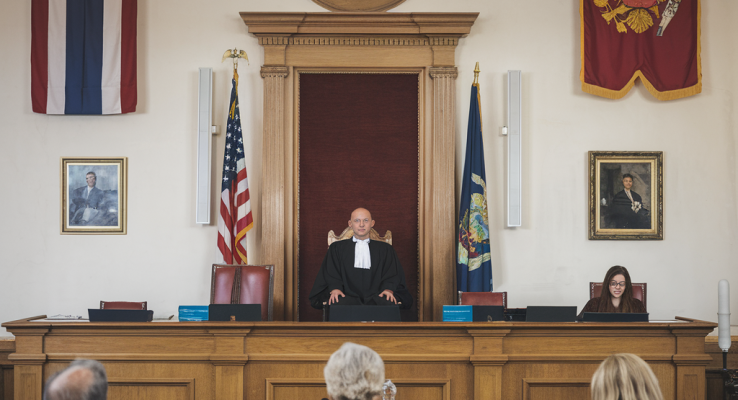
When you face criminal defense, understanding the landscape of defense strategies can greatly impact your case. You need to grasp the differences between misdemeanors and felonies, as well as the various tactics available, like alibis or self-defense claims. It’s not just about knowing your options; gathering solid evidence and collaborating with a skilled attorney are essential steps. But what happens when you weigh the potential outcomes against the risks involved? The decisions you make now could shape your future in unexpected ways.
Understanding Criminal Charges
When you face criminal defense charges, it’s vital to grasp what’s at stake. Understanding the nature of the charges against you can greatly impact your case. Each charge carries specific legal implications, potential penalties, and consequences for your future.
You might be dealing with misdemeanors, which generally involve less severe penalties, or felonies, which can lead to more serious repercussions, including lengthy prison sentences.
Take the time to familiarize yourself with the elements of the charges. This means knowing what the prosecution must prove to secure a conviction. If you understand these details, you can better prepare your defense.
It’s also important to recognize any potential defenses that could apply to your situation, as this knowledge can help you make informed decisions.
Don’t underestimate the significance of consulting with an experienced attorney. They can clarify the charges, explain the legal process, and guide you through your options.
Remember, the way you respond to the charges can influence the outcome. Being proactive and informed is your best strategy in maneuvering this challenging situation.
Ultimately, understanding your criminal defense can empower you to take control of your defense and work toward the best possible resolution.
Types of Defense Strategies
After gaining a solid understanding of your criminal defense, it’s time to explore the various defense strategies available to you.
One common approach is the alibi defense, where you prove you were somewhere else when the crime occurred. If you can provide reliable witnesses or evidence, this can be a strong strategy.
Another option is the self-defense strategy, which argues that you acted to protect yourself from imminent harm. This defense hinges on the reasonableness of your response to the perceived threat.
You might also consider the insanity defense, claiming you were unable to understand the nature of your actions due to a mental disorder at the time of the incident.
Additionally, there’s the defense of mistake, which can argue you didn’t have the intent to commit a crime due to a misunderstanding of the circumstances.
Finally, the argument of lack of evidence can be pivotal; if the prosecution can’t prove their case beyond a reasonable doubt, you may have a valid defense.
Each strategy has its nuances, so discussing your options with a qualified attorney is essential to determine the best approach for your situation.

The Role of Plea Bargains
Plea bargains play an essential role in the criminal defense justice system, often providing a pathway to resolve cases without going to trial. When you’re facing criminal defense, a plea bargain can be a strategic option to evaluate. It typically involves an agreement where you plead guilty to a lesser charge or receive a reduced sentence in exchange for avoiding the uncertainties of a trial.
Engaging in a plea bargain can save you time, money, and the emotional toll of a lengthy court process. Prosecutors also benefit, as resolving cases quickly allows them to allocate resources to other matters.
However, it’s vital to weigh the pros and cons carefully. Accepting a plea bargain means you’ll have a conviction on your record, which can have lasting implications.
Before making any decisions, consult with your attorney to fully understand the offer and its potential consequences. They can help you assess whether the deal is fair based on the evidence against you and the potential outcomes of going to trial.
Self-Defense Claims Explained
Self-defense claims can provide an important lifeline in criminal defense cases involving violence. When you assert self-defense, you’re arguing that your actions were justified because you faced an imminent threat.
To successfully make this claim, it’s important to understand a few key points:
- Immediacy: The threat you faced must be immediate. You can’t claim self-defense if the danger has passed.
- Proportionality: Your response must be proportional to the threat. Using excessive force can undermine your claim.
- Reasonable Belief: You must have a reasonable belief that you were in danger. This belief is judged from the perspective of a reasonable person in the same situation.
- Retreat: In some jurisdictions, you’re required to retreat if it’s safe to do so before using force. Knowing the laws in your area is essential.
Understanding these elements can greatly impact your case. If you believe you acted in self-defense, consulting with a knowledgeable attorney is crucial.
They can help you navigate the complexities of the law and build a strong defense tailored to your situation.
Importance of Evidence
When building a strong self-defense claim, the role of evidence can’t be overstated. Evidence serves as the backbone of your case, helping to establish the facts and support your narrative. Without it, your claims may appear weak or unsubstantiated, making it difficult for you to convince a judge or jury of your innocence.
You need to gather all relevant evidence, including witness statements, photographs, video footage, and physical evidence from the scene. Each piece can play an essential role in demonstrating the circumstances surrounding the incident.
For instance, eyewitness accounts can corroborate your version of events, while surveillance videos can provide a clear depiction of the situation.
It’s also important to take into account the quality and credibility of your evidence. Reliable sources and well-documented information can greatly enhance the strength of your case.
If you’re able to present compelling evidence that supports your self-defense claim, you increase your chances of achieving a favorable outcome.
Working With Your Attorney
Choosing the right attorney is essential for effectively guiding your defense strategy. Your attorney isn’t just your legal representative; they’re your partner in navigating the complexities of your case.
To make the most of this relationship, keep these key points in mind:
- Communicate openly: Share all relevant details about your case. The more your attorney knows, the better they can defend you.
- Stay organized: Keep all documents, evidence, and correspondence in order. This helps your attorney build a stronger case and minimizes misunderstandings.
- Follow their advice: Trust their expertise. If they recommend a particular strategy or action, it’s based on their knowledge and experience in the field.
- Ask questions: Don’t hesitate to seek clarification on anything you don’t understand. This guarantees you’re both on the same page and can make informed decisions together.
Potential Outcomes and Considerations
Understanding the potential outcomes of your case is essential for preparing your defense strategy. Each case has unique elements that can lead to various results, such as acquittal, plea deals, or convictions. By grasping these possibilities, you can make informed decisions alongside your attorney.
Consider the severity of the charges against you. Misdemeanors typically result in lighter penalties, while felonies can lead to significant prison time. If you’re facing a serious charge, you might want to explore plea bargains to reduce the consequences. It’s vital to weigh the pros and cons of each option.
Additionally, think about the evidence and witness testimonies involved. Strong evidence may limit your chances of a favorable outcome, while weak evidence could open doors for dismissal.
Keep in mind the impact of your case on your personal and professional life. A conviction could hinder future job opportunities or affect your relationships.
Ultimately, stay proactive and communicate openly with your attorney about your concerns and goals. This dialogue will help you navigate the complexities of your case and choose the best path forward.
Conclusion
In steering through criminal defense, it’s crucial to understand the different defense strategies available to you. Whether you’re considering an alibi, a self-defense claim, or pursuing a plea bargain, each option requires careful thought and strong evidence. Collaborating closely with your attorney can help you make informed decisions and strengthen your case. Remember, being proactive and well-informed can greatly impact the outcome of your situation, so don’t hesitate to seek the guidance you need.
-
Does my past affect my criminal defense strategy?
Yes, prior records can impact defense strategies and potential outcomes.
-
Can I speak to the police without a lawyer?
It's advisable to consult a lawyer before making any statements to the police.